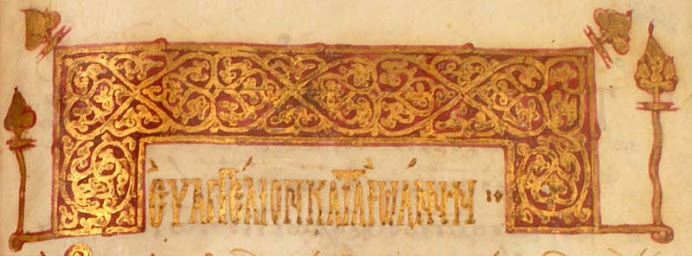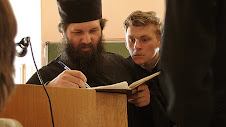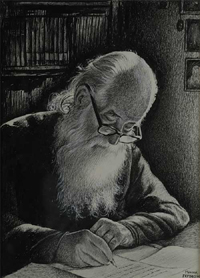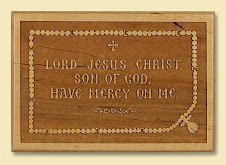
The following is the introduction to Fr Alexander Schmemann's prophetic essay, Problems of Orthodoxy in America: The Canonical Problem, originally published in 1964. It should be required reading for all who toss around the words "canonical" and "uncanonical" loosely:
No term is used—and misused—among the Orthodox people in America more often than the term canonical. One hears endless discussions about the "canonicity" or the "uncanonicity" of this or that bishop, jurisdiction, priest, parish. Is it not in itself an indication that something is wrong or, at least, questionable from the canonical point of view in America, that there exists a canonical problem which requires an overall analysis and solution? Unfortunately the existence of such a problem is seldom admitted. Everyone simply claims the fullness of canonicity for his own position and, in the name of it, condemns and denounces as uncanonical the ecclesiastical status of others.One must sadly admit that matters have only gotten worse in the close to half-century since Fr Alexander penned these words. True, the Serbian Church healed its schism, the Ukrainians have for the most part united under the Ecumenical Patriarchate, and the Russian Orthodox Church Abroad has overcome its division with the Church in Russia. That said, the number of rival jurisdictions seems to grow daily. How many local Orthodox Churches have decided to open up branches in North America, to be populated largely by converts with no genealogical ties to their new "Mother Churches"? Into how many new groups have the various "True Calendar" multiplied like cancer cells? And all the while, each jurisdiction shrouds itself under the mantle of "canonicity." Building on Fr Alexander's reflections, we must admit that we are all fundamentally uncanonical, whether we belong to so-called "World Orthodoxy" to or so-called "True Orthodoxy," or anywhere in between. If nothing else, let us stop using "canonical" as a self-congratulating sobriquet for ourselves, and "uncanoncial" as a negative epithet for everyone else. Let those in the "official" Orthodox jurisdictions have the humility to learn from the uncompromising stance of the zealots, and let the zealots appreciate that they do not have an exclusive claim to the Truth. (Granted there are groups that call themselves Orthodox that really are entirely illegitimate, but they are few and far between.) Let us bear in mind Fr Alexander's concluding words:
And one is amazed by the low level and cynicism of these "canonical" fights in which any insinuation, any distortion is permitted as long as it harms the "enemy." The concern here is not for truth, but for victories in the form of parishes, bishops, priests "shifting" jurisdictions and joining the "canonical" one. It does not matter that the same bishop or priest was condemning yesterday what today he praises as canonical, that the real motivations behind all these transfers have seldom anything to do with canonical convictions; what matters is victory. We live in the poisoned atmosphere of anathemas and excommunications, court cases and litigations, dubious consecrations of dubious bishops, hatred, calumny, lies! But do we think about the irreparable moral damage all this inflicts to our people? How can they respect the Hierarchy and its decisions? What meaning can the very concept of canonicity have for them? Are we not encouraging them to consider all norms, all regulations, all rules as purely relative?
One wonders sometimes whether our bishops realize the scandal of this situation, whether they ever think about the cynicism all this provokes and feeds in the hearts of Orthodox people. Three Russian jurisdictions, two Serbian, two Romanian, two Albanian, two Bulgarian. A split among the Syrians . . . The animosity between the Russians and the Carpatho-Russians... The Ukrainian problem! And all this at a time when Orthodoxy in America is coming of age, when truly wonderful possibilities exist for its growth, expansion, creative progress. We teach our children to be "proud" of Orthodoxy, we constantly congratulate ourselves about all kinds of historic events and achievements, our church publications distill an almost unbearable triumphalism and optimism, yet, if we were true to the spirit of our faith we ought to repent in "sackcloth and ashes," we ought to cry day and night about the sad, the tragical state of our Church. If "canonicity" is anything but a pharisaic and legalistic self-righteousness, if it has anything to do with the spirit of Christ and the tradition of His Body, the Church, we must openly proclaim that the situation in which we all live is utterly uncanonical regardless of all the justifications and sanctions that every one finds for his "position."
For nothing can justify the bare fact: Our Church is divided. To be sure, there have always been divisions and conflicts among Christians. But for the first time in history division belongs to the very structure of the Church, for the first time canonicity seems strangely disconnected from its fundamental "content" and purpose—to assure, express, defend and fulfill the Church as Divinely given Unity, for the first time, in other terms, one seems to find normal a multiplicity of "jurisdictions". Truly we must wake up and be horrified by this situation. We must find in ourselves the courage to face it and to re-think it in the light of the genuine Orthodox doctrine and tradition, no matter what it will cost to our petty human likes and dislikes. For unless we, first, openly admit the existence of the canonical problem and, second, put all our thoughts and energies into finding its solution, the decadence of Orthodoxy will begin—in spite of the million-dollar churches and other magnificent "facilities" of which we are so justly proud. "For the time is come that judgment must begin at the house of God: and if it first begin at us, what shall the end be of them that obey not the gospel of God?" (1 PET. 4: 17).
In the last analysis the requirements of our Orthodox canonical tradition, the solution of our canonical problem coincides, strange as it may seem, with the most practical solution, with common sense. But it is not strange. For Tradition is not a dead conformity with the past. Tradition is life and truth and the source of life. "Ye shall know the Truth and the Truth shall make you free."— free to follow the glorious Truth and to fulfill in this great country the mission of Orthodoxy.Amen!









No comments:
Post a Comment